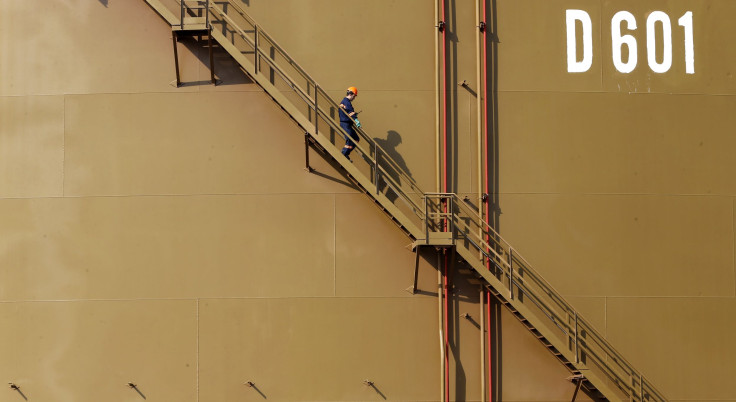Up To 400,000 Barrels Of Iraqi Oil ‘Remains Inactive’ As Kurds, Iraqi Central Government Aim To Solve Payment Issue

The key to a permanent resolution of disputes between Iraq's central government and leaders of its semiautonomous region known as Kurdistan over what to pay for oil produced in Kurdistan lies with Turkey, according to experts. That's because Turkey, which wants to refine the as-yet-undelivered Kurdish crude oil, is mediating the dispute between Irbil, the capital of Iraqi Kurdistan, and Baghdad, Iraq's capital.
Last month Baghdad sent $500 million to a Turkish bank account held by Irbil for 150,000 barrels of oil. But Turkey wants a permanent resolution, says Iraq energy analyst Ali Semin of the Istanbul-based think tank known as Bilge Adamlar Stratejik Araştırmalar Merkezi.
Semin's comments come as officials from Iraq's semiautonomous Kurdistan region -- Prime Minister Nechirvan Barzani, Minister of Natural Resources Ashti Hawrami and Finance Minister Rebaz Hamlan -- arrived in Baghdad on Sunday to meet with Iraq Prime Minister Haider Al-Abadi and Iraq President Fuad Masum along with other high-level officials.
On Saturday Al-Abadi said the common threat from ISIS “encourages us to solve all outstanding problems.” One reason Al-Abadi wants a solution is that Baghdad is doing without its share of revenue from Kurdish crude oil.
For their part, the Kurds need a permanent deal with Baghdad over oil revenue because their arrangement with Turkey’s state-owned Halk Bankasi, where revenue from Kurdish oil sales are being deposited, is contingent on a resolution. Baghdad’s recent decision to send money to Erbil in exchange for 150,000 barrels of oil per day from the Kirkuk oil field is seen as a step in the right direction, but the Kurds want a permanent resolution.
"Baghdad sent $500 million, but the monthly expenses of the Kurdish regional government are around $650 million,” Semin told the Turkish business news site PortTurkey.com in a report published Monday. In July, the Kurdistan regional government seized control of the Kirkuk and Bai Hassan oil fields, prompting condemnation from Baghdad. “Irbil needs to reconcile with Baghdad,” Semin added.
As the Kurds push for a larger share of Iraq’s oil revenue, a key component of the country’s oil exports has been closed for the past eight months due to frequent attacks from ISIS Islamist militants. The closing eight months ago of the Kirkuk-Ceyhan pipeline, Iraq’s largest crude oil-export line and the link between Iraq’s northern oil fields and refineries in southern Turkey, has cost Iraq about $1.2 billion. Not only that but currently some 400,000 oil barrels in Kirkuk “remain inactive,” Semin said.
© Copyright IBTimes 2024. All rights reserved.












